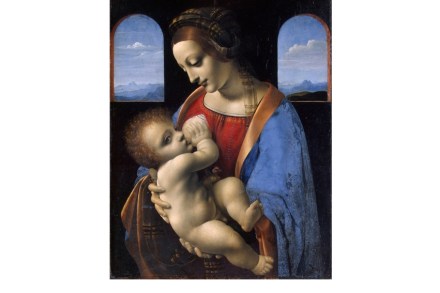Historical knockabout
It’s a palace drama with all the trimmings. Trevor Nunn’s new production, The Lion in Winter, plunges us into the court of Henry II and his spurned wife, Eleanor of Aquitaine, as they struggle to decide which of their three sons should inherit the throne. Eleanor, held prisoner in a deluxe royal fortress, has been granted leave to join the family at Christmas. ‘Thanks for letting me out,’ she says, on their first meeting. ‘It’s only for the holidays,’ jokes Henry. Clearly a king who locks his wife in the broom cupboard won’t pay much heed to her views on the succession. So there’s an emotional and dramatic illogicality here











